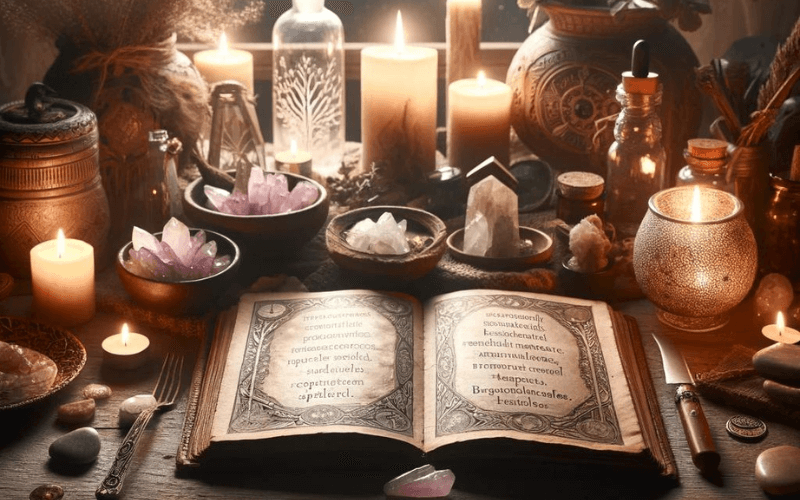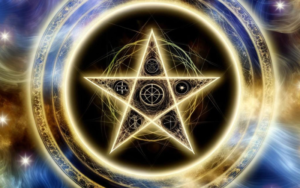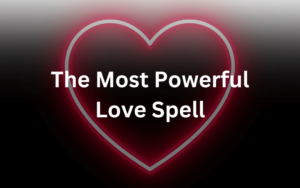The Basics of Being a Good Witch
In witchcraft, we have some key rules that many of us try to live by, even though we might all practice a bit differently. Two big ones you might hear about are the Wiccan Rede and the Threefold Law. The Wiccan Rede is like a golden rule for witches: “An it harm none, do what ye will.” It means you can do what you like, as long as it doesn’t hurt anyone. The Threefold Law is about understanding that whatever you put out into the world, good or bad, will come back to you three times as strong. These aren’t strict laws, but they’re good guidelines to think about the consequences of your actions.
The Role of Intent
When we talk about intent in witchcraft, we’re talking about the why behind your magic. It’s all about what you’re hoping to achieve and making sure it’s for a good reason. Your intent is super important because it directs your energy and determines the kind of impact your magic will have. Good intentions help keep your magic positive and harm-free, which is at the heart of ethical witchcraft.
Spell Casting: Doing It the Right Way
Consent in Magical Practices
Getting permission is a big deal in witchcraft, especially when your spells involve other people. Imagine someone making decisions for you without asking first; it doesn’t feel great, right? The same goes for magic. If you’re thinking about doing a spell for someone else, whether it’s for healing, protection, or anything else, it’s super important to ask them first. Casting spells without consent can mess with their free will, and that’s a big no-no in ethical witchcraft. Plus, doing something to someone without their okay can lead to unexpected problems that you didn’t mean to cause.
The Impact of Curses and Hexes
Talking about curses and hexes can be a bit touchy. They’re basically spells meant to cause harm, and they can get pretty complicated when it comes to ethics. Some witches believe there’s a time and place for them, while others think they should never be used because of the potential harm they can cause, not just to the person they’re aimed at, but also to the person casting them. Remember the Threefold Law? If you send out negative energy, it might come back to you three times as strong. That’s why many witches stick to the motto “harm none” and look for other solutions to their problems.
Responsibility for Outcomes
When you cast a spell, you’re responsible for what happens next, whether you meant for it to happen or not. This is why thinking things through before casting is key. It’s like baking a cake: if you mix the wrong ingredients, you can’t be surprised when it doesn’t come out right. The same goes for spells. If you’re not careful with your intentions and the energy you’re sending out, you might end up with results you didn’t want or expect. So, it’s really important to consider all the possible outcomes and make sure you’re prepared to handle them.
Making the Right Choices in Witchcraft
Personal Boundaries and Limits
It’s super important for every witch to know their own ethical lines in the sand. What feels totally okay for one person might not sit right with another, and that’s perfectly fine. Think about what you’re comfortable with in your magical practice, like what kind of spells you’re willing to cast, or if there are any you’d never want to touch. Setting these personal boundaries helps you stay true to yourself and keeps your magic aligned with your beliefs. Just like in everyday life, knowing what you stand for and where you draw the line helps you make decisions that feel right to you.
Dealing with Ethical Conflicts
Sometimes, you might find yourself in a sticky situation where your witchy ethics clash with someone else’s, or you’re just not sure what the right move is. This is pretty normal, especially in a community as diverse as the witchcraft one. When this happens, it can be really helpful to chat with witches who’ve been around the block a few times.
They can offer a fresh perspective or share their own experiences, which might help you see things in a new light. Also, taking some time for a bit of self-reflection can help you untangle your feelings and figure out what really matters to you in this situation. Remember, it’s okay to take a step back and think things through before making a decision.
Conclusion
Good witchcraft practices are not just about sticking to a set of rules; it’s about really thinking through how your actions affect others, yourself, and the world around you. Every spell we cast, every ritual we perform, sends ripples out into the universe. That’s why it’s so crucial to approach our craft with a thoughtful and caring heart, making sure that what we’re doing is for the best.
But understanding what’s ethical isn’t always black and white; it’s a journey that involves constant learning and reflection. This is where talking with other witches and sharing our experiences can be incredibly valuable. By having open discussions about ethics, we can learn from each other, challenge ourselves to think differently, and grow as practitioners.
So, let’s keep the conversation going. Let’s share our stories, ask tough questions, and support each other in practicing witchcraft in a way that’s responsible and kind. After all, the true power of witchcraft lies not just in the spells we cast, but in the positive impact we can make when we use our craft wisely and with love.
New to witchcraft? Check out ‘7 Must-Read Tips on Modern Witchcraft for Beginners’ to get started on solid ground. No fluff, just practical advice to kick-start your journey.





